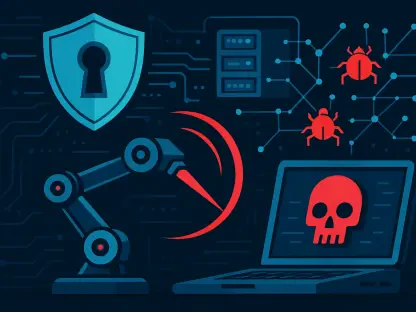AI web-crawlers have become an unwelcome presence for developers, particularly for those involved in Free and Open Source Software (FOSS) projects. These bots, typically designed to collect data from websites, often disregard established web protocols, leading to significant disruptions. FOSS projects, due to their open nature, are especially vulnerable, resulting in downtime and resource strains. In response, developers are deploying ingenious methods to mitigate the impact of these relentless crawlers, ensuring their projects remain functional and accessible.
The Problem with AI Web-Crawlers
AI web-crawlers relentlessly scour the internet, with many ignoring directives specified in the Robots Exclusion Protocol (robots.txt). This negligence causes frequent server overloads and sometimes leads to DDoS (Distributed Denial of Service) attacks. For developers, these bots are intrusive, causing substantial operational disruptions. The severity of the issue has necessitated increased attention and resources to mitigate the damage they cause.
FOSS projects are hit hardest because they inherently have open and publicly accessible infrastructure. Unlike commercial products, these projects often lack the resources to deploy robust defenses against such invasive crawlers. The continuous strain on their infrastructure hampers progress and diverts valuable time and energy away from development efforts toward addressing these disruptions. The relentless nature of these crawlers not only affects server performance but also undermines the efficiency and morale of developers who must constantly fend off these digital intruders.
Impact on the FOSS Community
For FOSS developers, the unregulated activities of AI web-crawlers pose significant challenges. Individuals like Xe Iaso express frustration as they spend considerable resources and time addressing disruptions caused by these bots. This challenge is especially acute for projects that rely on community contributions and volunteer efforts. The constant need to address unexpected server crashes and resource drains becomes a major hurdle.
The broader FOSS community is also feeling the strain. Developers share accounts of server crashes and the resource drains caused by these unwelcome bots. These disruptions not only hinder the development process but also affect user accessibility and trust. The impact on user confidence can be particularly damaging, as users may become hesitant to rely on projects that frequently experience downtime. It is clear that effective, combative measures are essential to safeguard the integrity and functionality of FOSS projects.
Developers’ Ingenious Solutions
In response to the growing menace of AI crawlers, developers have leveraged their creativity to deploy a variety of innovative tools and tactics. One notable solution is Anubis, developed by Xe Iaso, which serves as a reverse proxy proof-of-work check. This tool ensures that only legitimate human users can access crucial resources, effectively blocking bots. Anubis humorously presents an anthropomorphized picture of the Egyptian god to human visitors while denying access to bots.
The rapid adoption of Anubis within the developer community highlights the urgency for such solutions. Within a short time of its release on GitHub, Anubis garnered over 2,000 stars, indicating a strong collective effort among developers to combat the bot problem. This solution signifies not just an immediate response, but a broader movement towards innovative and practical defenses. The popularity and effectiveness of Anubis demonstrate the developers’ ability to address the issue with both technical expertise and a touch of humor.
Community Reactions and Broader Adoption
The array of responses to AI web-crawlers has fostered a spirit of collaboration within the FOSS community. Developers share stories of extreme measures, such as banning entire IP ranges, to protect their projects. Solutions like Cloudflare’s AI Labyrinth have gained traction as a way to mislead bots with irrelevant content, further demonstrating the range of defensive strategies being employed.
Prominent figures in the FOSS community, including Drew DeVault and Jonathan Corbet, underline that addressing AI web-crawlers is now an essential part of maintaining project infrastructure. The collaborative approach to sharing successful strategies and the wide adoption of defensive tools like Anubis emphasize the importance of unity in combating these threats. This atmosphere of cooperation ensures that the community remains resilient against the evolving tactics of AI bots.
Innovation Amidst the Battle
AI web-crawlers have become a significant challenge for developers, especially those working on Free and Open Source Software (FOSS) projects. These automated bots are primarily designed to collect data from websites, but they often ignore established web protocols, causing major disruptions. The open nature of FOSS projects makes them particularly susceptible to these issues, leading to downtime and unnecessary resource strains. In response to this persistent problem, developers are coming up with creative strategies to minimize the impact of these relentless web-crawlers. These strategies aim to ensure that their projects remain functional, accessible, and less burdened by the unwanted traffic. By implementing innovative solutions, developers can better protect their projects from the negative consequences of these intrusive AI bots. The ultimate goal is to maintain the smooth operation of FOSS projects, allowing them to continue serving their intended purpose without unnecessary interruptions.









